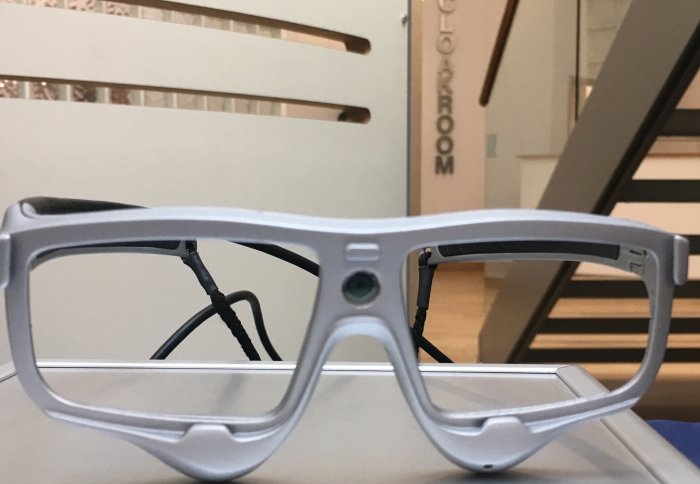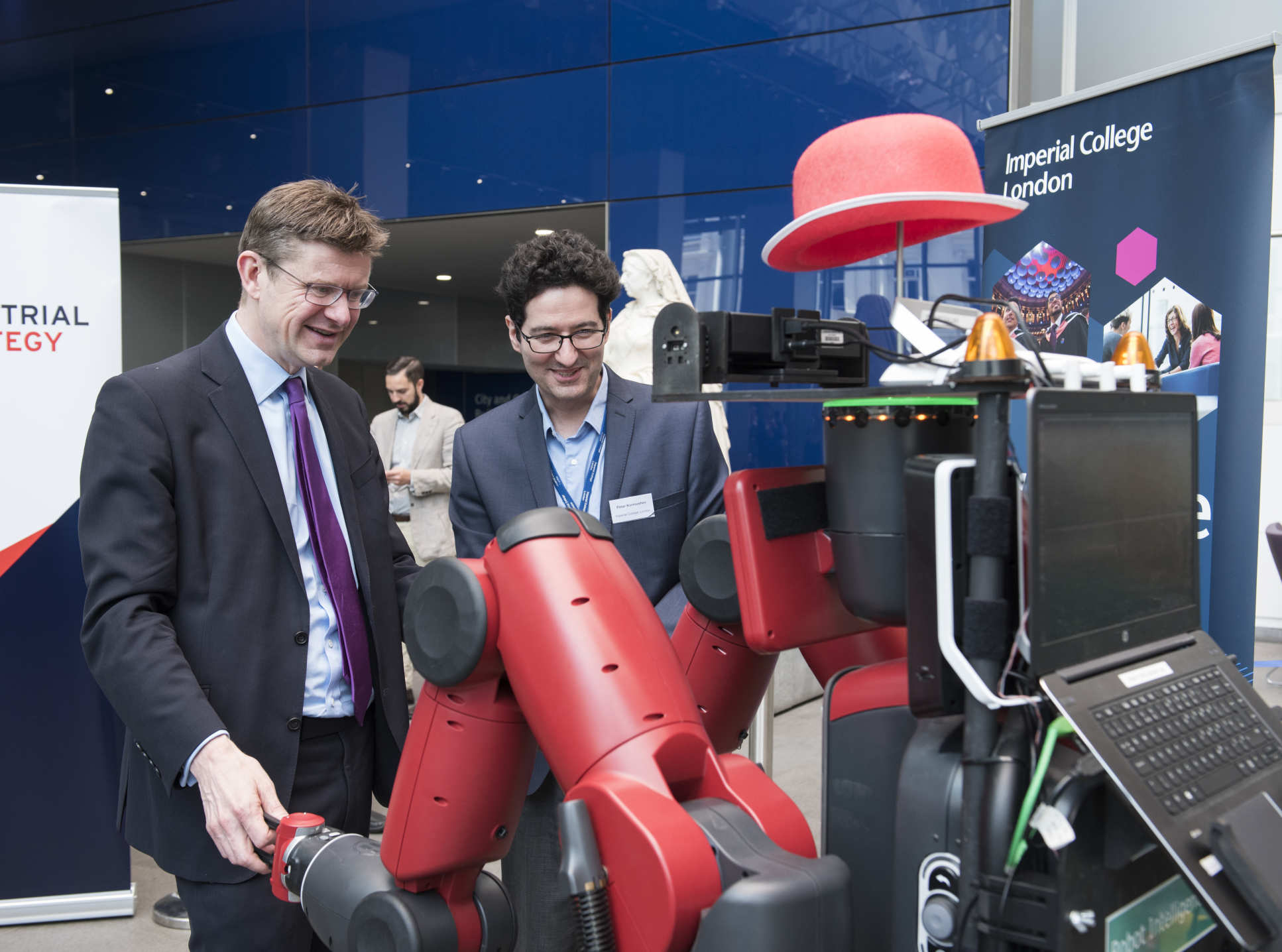Imperial showcases how AI is transforming healthcare to government officials
by Tom Rutland

The Brain and Behaviour Lab's smart glasses that were on display at the BEIS all staff day
Imperial experts gave civil servants a unique insight into the potential clinical applications of artificial intelligence.
On Monday 2 July, Imperial attended the Department for Business, Energy and Industrial Strategy’s all staff day, where academics highlighted how they’re using AI and machine learning to improve patient care.
The event was focused on the Government’s Industrial Strategy, which aims “to put the UK at the forefront of the industries of the future, ensuring that the UK takes advantage of major global changes, improving people’s lives and the country’s productivity.”
The Industrial Strategy outlines four Grand Challenges, which are focused on the global trends that will transform our future: artificial intelligence and data, ageing society, clean growth and the future of mobility.
Imperial’s presence at the event focused on the potential of machine learning to offer advancements in healthcare for patients.
Transforming patient monitoring

Balasundaram Kadirvelu, a Research Associate in the Department of Computing, showed off the Brain and Behaviour Lab’s wearable sensors that track the progression of Duchenne Muscular Dystrophy, or the improvement in stroke patients.
Patients wear 17 digital biomarkers to collect real-time data on their body movement, which provide a richer data set for doctors than traditional movement tests conducted during regular check-ups.
The research group working on these digital biomarkers hope that the cost of drugs to treat these conditions will be reduced, as the rich data sets produced by the biomarkers can halve the length of clinical trials.
Helping hand

Chaiyawan Auepanwiriyakul, a Research Assistant in the Department of Computing, demonstrated the potential of machine learning to assist people with reduced grip ability – such as those suffering from paralysis or Parkinson’s disease – to regain an ability to fully grasp objects.
The Brain and Behaviour Lab is developing a glove that acts as an exo-skeleton, compensating for patients’ reduced grip ability by helping them close their fingers and thumbs around everyday objects such as cups and apples.
When combined with a set of smart glasses that use machine learning to both identify the objects they are looking at as well as the intentions of the wearer, the glove is able to fully stimulate a grip movement in a patient with no ability to bend their fingers.
Staff who visited the stall were able to try on the glove and feel for themselves the potential it has to improve the independence of patients.
Flying visit

Imperial’s world-leading research was highlighted by other stallholders, with UK Research and Innovation hosting Dr Mirko Kovac, Director of Imperial’s Aerial Robotics Laboratory, who was representing the new Orca Hub that will develop robotic and artificial intelligence technologies for use in harsh offshore environments.
The British Heart Foundation stall featured research that the charity is funding, led by Imperial’s Dr Declan O’Regan. His team’s research uses machine learning to assist doctors with assessing prognosis for patients with heart conditions including pulmonary hypertension and dilated cardiomyopathy.
Also on display was q-bot, a robotic solution to provide under floor insulation without having to rip apart the floorboards of a house. Founders of q-bot include Professor Peter Childs, Head of the School of Design Engineering at Imperial.
A global authority

Imperial recently hosted the launch of the government’s AI Sector Deal, which included an announcement of funding for 1,000 new artificial intelligence PhDs.
At the launch, Business Secretary Greg Clark said: "Every time I come to Imperial I am reminded by how much is going on here. Britain has long heritage in artificial intelligence and our universities are leading the world. Imperial's Vice Provost Professor Nick Jennings is a global authority in artificial intelligence and Imperial's researchers are leading the world in this area.”
Article text (excluding photos or graphics) © Imperial College London.
Photos and graphics subject to third party copyright used with permission or © Imperial College London.
Reporter
Tom Rutland
Communications and Public Affairs